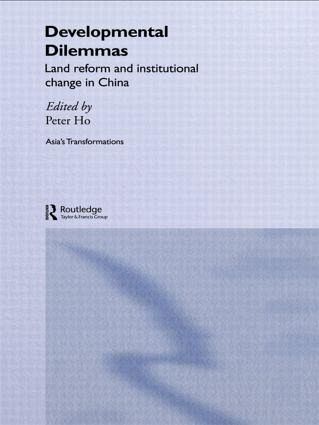
Developmental Dilemmas
Land Reform and Institutional Change in China
Versandkostenfrei!
Versandfertig in 1-2 Wochen
61,99 €
inkl. MwSt.
Weitere Ausgaben:

PAYBACK Punkte
31 °P sammeln!
Developmental Dilemmas singles out land as an object of study and places it in the context of one of the world's largest and most populous countries undergoing institutional reform: the People's Republic of China. The book demonstrates that private property protected by law, the principle of 'getting-the-prices-right', and the emergence of effectively functioning markets are the outcome of a given society's historical development and institutional fabric. Peter Ho argues that the successful creation of new institutions hinges in part on choice and timing in relation to the particular constella...
Developmental Dilemmas singles out land as an object of study and places it in the context of one of the world's largest and most populous countries undergoing institutional reform: the People's Republic of China. The book demonstrates that private property protected by law, the principle of 'getting-the-prices-right', and the emergence of effectively functioning markets are the outcome of a given society's historical development and institutional fabric. Peter Ho argues that the successful creation of new institutions hinges in part on choice and timing in relation to the particular constellation of societal, economic, political and cultural parameters. Disregarding these could result in rising inequality, bad land stewardship, and the eruption of land-related grievances.














